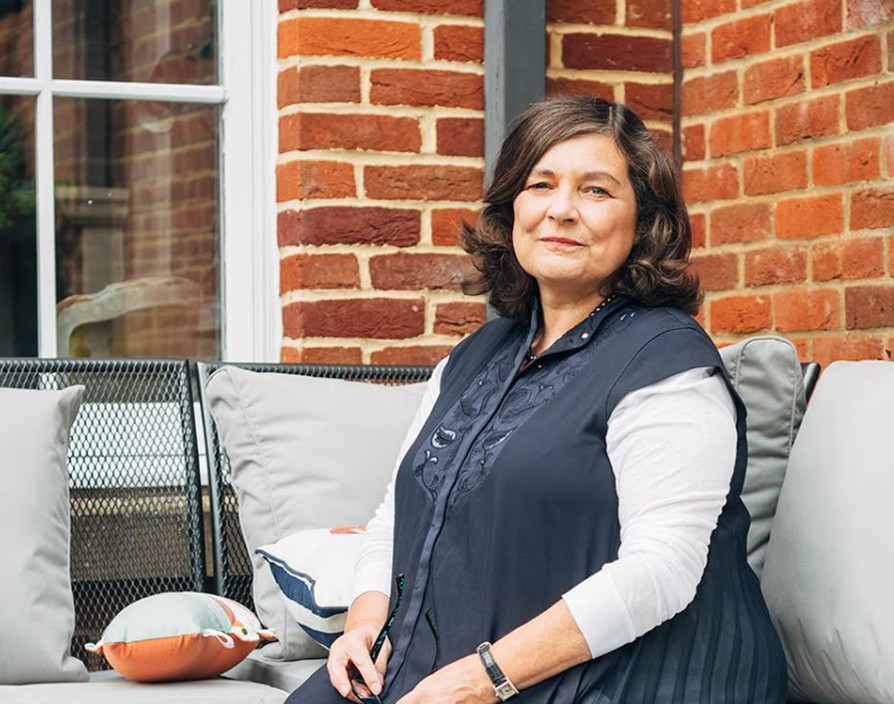Anne Boden talksabout how she quit a thriving banking career, sold her home and worked at ahigh street cafe to launch Starling Bank
In the very early days, my office was the branch of Pain Au Quotidien on Marylebone High Street in London, where I would sit myself down with a laptop, drinking endless cups of tea while I wrote email after email to get my big idea off the ground, Anne Boden, the founder and CEO of Starling Bank tells me. Boden was raised in Swansea, Wales as an only child to a steelworker and a department store employee. Anne’s parents exposed her to the art of saving from a young age, and the fintech entrepreneur later ran her school’s bank at the age of 11. Little did she know, she would one day run a successful digital bank with over 1.4 million customers all over the world. As I grew up, I became more and more interested in science which led me to study chemistry and computer sciences at Swansea University, Boden said. I guess it is my early interest in technology that has been a key driver throughout my career and ultimately led me to found Starling.
Boden’s roots lie in tech. She started a career in conventional banking, holding big positions at some of the world’s top banks including Lloyds, RBS and Standard Chartered to name a few. As the world made a dynamic shift to digital, Boden saw a gap with banking services and wanted to create a system where people could manage their money securely with the touch of a screen. Boden realised that if she wanted to see a digital bank in live-action, she would have to launch one herself. Technology has changed everything, from the way we shop, to the way we communicate with one another, Boden tells me. I noticed that banking hadn’t progressed technologically and this frustrated me. As a result, I launched Starling, a more human alternative to the banks of the past. The big banks seemed to be stuck in the past technologically. Their systems were slow and yet no one seemed to be improving them. I realised that if I wanted to see a real digital bank in action, I would have to launch one myself.
In 2019, Starling bank won £100 million of investment from RBS to expand its SME banking and has been named Best Bank at the British Banking Awards for three years in a row. However, the early days of Sterling were no easy feat. Getting initial funding was difficult. Boden was forced to sell her home for initial start-up capital while seeking out funding from investors and venture capitalists. In early days of Starling, Boden recalled sitting at a cafe sending out emails for hours to potential clients. When I told people, I was going to open a bank they didn’t believe me. Raising the funding I needed was difficult…When you are doing something like this, you have to talk to everybody you can and call in all the favours you need, Boden tells me. I spent a lot of time working (rent-free) out of the customer service lounges of both KPMG and PWC as I tried to interest them in my idea to start a bank from scratch. When I felt I had outstayed my welcome in one, I moved to the other. They never actually complained. Well, not to my face. Getting our banking licence was very important. I wouldn’t call it a struggle. But it required an incredible amount of work. When it was completed, I took the boxes of documents around to the regulator myself.
Even with its paramount success, Starling Bank was no stranger to setbacks during the coronavirus pandemic. As a digital platform, Starling Bank managed to keep operations afloat as foundations were already in place to operate solely only online. Starling Bank has also helped thousands of SMEs received loans to help them during this difficult time with The Coronavirus Business Interruption Loan Scheme and the Business Bounce Back Loan Scheme as an accredited lender. We’re a digital-only bank so a lot of the foundations were already in place for us to operate our business remotely, Boden tells me. One of our biggest challenges was to become an accredited lender with the British Business Bank for the Coronavirus Business Interruption Loan Scheme and the Bounce Back Loan Scheme so that we could get government-backed loans out to small businesses that were struggling as a result of the lockdown. The priority was to move incredibly quickly and there was a lot of work to do and a lot of decisions to take in a very short space of time. We had teams working virtually round the clock to get these schemes up and running. Then we had to deal with very high demand. But these were all good challenges to have because we’ve been able to help more than 25,000 small businesses with this lending so far.
Boden believes digital is the way forward, and that coronavirus lockdown has accelerated the switch as more businesses embrace technological advancements in their day-to-day operations. Lockdown has accelerated a push into digital banking just like it is doing with all consumer services, Boden said. Many people who were wary about banking remotely before have found the confidence to do so. I doubt many will go back. Our approach is to put the customer first and to use technology to provide better customer experience. This translates into giving people a fairer, smarter and more human alternative to the banks of the past and putting the tools they need to feel good about money in the palm of their hand. Because Starling works in an agile manner, with collaboration in multidisciplinary teams and a flat organisational structure to make decision-making faster, we are able to be responsive and to adapt quickly to change. This makes us quite different from traditional banks, which tend to be highly bureaucratic, hierarchical and process-driven.
As businesses reopen and the world transitions out of lockdown, Boden insisted digital banks must continue innovating to remain competitive and relevant in an ever-changing world. It is vital for fintech companies to respond to changing consumer habits and evolve with the times, delivering better and more efficient services to meet the rising demands. If we are to remain relevant and competitive, we have to keep innovating, Boden said. Not all FinTechs will survive. Incumbent banks also risk losing ground if they are slow to respond to new technology and changing consumer habits. The winners will ultimately be the institutions that continue to push the boundaries of delivering financial services. The future of banking doesn’t stop with app-based banks; technology is going to continue to develop and speed up, so banking could take place through a medium that has not yet been invented. Any digital bank that thinks they can just build an app-based bank and then relax is going to get left behind. Starling is an innovator and we will keep innovating.
When it comes to reaching success, Boden has shared her top success tips for any budding entrepreneurs out there: Make your opportunities and make yourself known. No one is waiting to open doors for you, there is no escalator to success – you have to make this yourself. All the while remembering that success creates more success. Also, if you have a boss that doesn’t like you, get a new job.
Stay relevant and useful to your customers. Everything you do has to provide added value for your users, she added.
“
Share via:








































